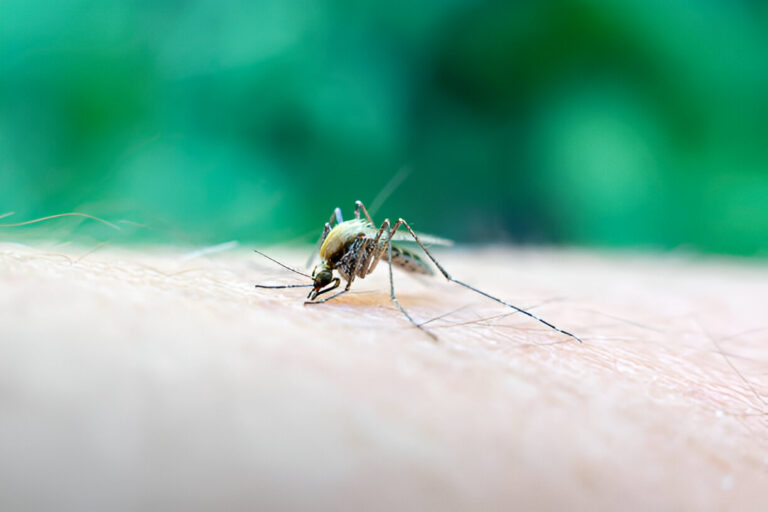Understanding Mosquito Habits
Mosquito Breeding Grounds
Mosquitoes thrive in humid conditions and are particularly fond of stagnant water for breeding. Typical breeding grounds include birdbaths, clogged gutters, plant saucers, and small items like discarded bottles. These overlooked areas can inadvertently become mosquito nurseries, harboring countless larvae that eventually grow into full-fledged pests. It’s essential to regularly inspect these spaces and eliminate any standing water, which can significantly cut down the mosquito population in your yard. Ensuring these areas are dry and well-maintained creates an inhospitable environment for mosquitoes, thus safeguarding your home and loved ones.
As the temperature rises and outdoor events occur more often, mosquitoes can quickly turn your cozy outdoor retreat into an unbearable experience. These tiny pests are more than just inconvenient; they pose significant health risks. That’s why understanding practical strategies for mosquito control in Wayne and other regions is crucial. Mosquitoes are not selective about their hosts—they’ll target anyone and everyone, making it essential to protect your home and your family. While they might be easy to overlook until swarms of them paint your evening outside with itchy welts, being proactive can significantly diminish their presence. From eco-friendly solutions like natural repellents to technological advancements such as electronic repellents, numerous strategies for mosquito control near me exist to keep your environment mosquito-free and enjoyable during those precious warm months.
Health Implications of Mosquito Bites
Diseases Transmitted by Mosquitoes
While mosquito bites typically result in itchy red bumps, they can also transmit serious diseases like West Nile Virus, Zika, and Dengue Fever. These illnesses can lead to serious health consequences, especially for at-risk populations like young kids, older adults, and pregnant women. The West Nile Virus, for instance, can lead to neurological complications in severe cases, while the Zika Virus has been associated with congenital disabilities. Grasping the dangers linked to these illnesses and ways to avert them is essential.
DIY Mosquito Control Methods
Natural Repellents and DIY Solutions
Many people prefer natural solutions to avoid chemicals. Lemon eucalyptus oil is a popular choice, as it’s an effective mosquito repellent that’s both safe and pleasant-smelling. Health institutions have recommended this essential oil, and it is an excellent alternative for those seeking natural pest control methods. Moreover, you can amplify your mosquito-fighting efforts by creating homemade mosquito traps using items like sugar, water, and yeast. These traps lure mosquitoes in and can significantly reduce their population.
Proper Yard Maintenance
A well-maintained yard is aesthetically pleasing and a powerful deterrent for mosquitoes. Regularly mowing the grass and clearing debris prevents mosquitoes from finding cozy hiding spots. Additionally, ensuring that gutters are clear and that water is not allowed to back up can prevent the creation of opportune mosquito breeding sites. Constant vigilance in cleaning and maintaining the yard can pay off significantly, contributing to a much less mosquito-friendly environment.
Technological Solutions
Mosquito Repellent Devices
Technology offers an array of innovative solutions for mosquito control. Electronic mosquito repellents, for instance, emit sound frequencies designed to deter mosquitoes. These devices are handy for protecting small areas such as patios or porches. They provide a convenient, chemical-free method for pest control, enhancing your comfort during outdoor activities.
Community and Eco-Friendly Initiatives
Joining Local Efforts
Fighting mosquitoes is most effective when it involves community participation. Engaging in local initiatives, such as neighborhood clean-up drives to remove potential mosquito breeding sites, can be profoundly impactful. These efforts reduce mosquito numbers and nurture a feeling of belonging and collective accountability, establishing a better living environment for everyone involved.
Eco-Friendly Alternatives
Implementing eco-friendly strategies is another excellent way to address mosquito problems sustainably. For instance, introducing mosquito-eating fish to your pond or water features can naturally control mosquito larva populations. Moreover, encouraging the presence of bats and birds, both natural mosquito predators, will help balance the ecosystem—offering a greener, toxin-free solution to mosquito control.
Seeking Professional Help
When to Consult a Pest Control Expert
Sometimes, despite best efforts, mosquitoes can become too overwhelming to handle alone. Consulting a pest control expert might be the best action in such cases. Experts possess the resources and knowledge to evaluate the situation and provide tailored solutions that you might not be able to implement independently. If you notice persistent mosquito problems characterized by increased bites and mosquitoes invading your indoor space, it might be time to bring in the professionals.
Monitoring and Future Steps
Sustainable Mosquito Management
Establishing and adhering to a seasonal routine for managing mosquito populations is essential for long-term sustainability. New technologies are continually emerging, offering more advanced tools and methods for mosquito eradication. Staying informed about these advancements and incorporating them into your strategy will ensure you remain one step ahead in the battle against mosquitoes.

